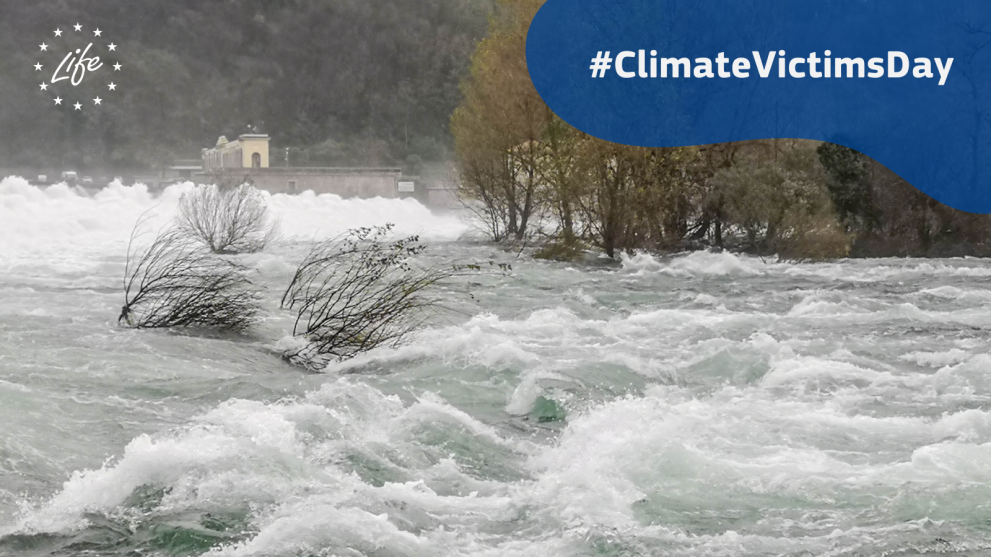
When the River Sorgue in France’s Aveyron department burst its banks after weeks of heavy rain in 2014, a hospital and residential home for elderly people in Saint Affrique were among the hardest hit. The floods, the worst in more than a decade, claimed the lives of five people and forced 3 000 more to flee their homes across south-west France.
‘Almost half of the hospital was flooded,’ recalls Sebastien Coquelin, Director of Financial Affairs at the Centre Hospitalier de Millau, one of the LIFE RESYSTAL project partners. ‘In the kitchen and the laboratory everything was destroyed. The hospital was practically closed for about six months. Within hours of the flood, we had to transfer patients to other hospitals, which had a significant impact and was highly detrimental to both patients and staff.
‘The rising frequency of extreme weather events have very serious implications for our health systems,’ says Helena Uhl from LIFE RESYSTAL partner Healthcare Without Harm Europe.
Climate change REsilience framework for health SYStems and hospiTALs - or LIFE RESYSTAL for short - is a 5.6 EUR million, four-year project due to close next year. By 2025 the project aims to have protected 31 000 patients and 46 hospitals every year from climate-related hazards, including extreme weather events. It will also train more than 100 healthcare professionals and create 2.7 ha of blue-green infrastructure.
‘Current climate change adaptation strategies tend to focus primarily on enhancing the resilience of critical infrastructures - for example energy transport and buildings. But they tend to overlook the healthcare sector and its dependency on those vital infrastructures,’ adds Helena.
That’s where LIFE RESYSTAL comes in. Ten partners, including hospitals, private clinics and research institutions from all over Europe have already set up seven pilot projects in hospitals and two regional health systems to help improve climate adaptation and resilience capabilities. Centre Hospitalier Saint Affrique, which was almost destroyed by the 2014 floods - but where extreme temperatures are also an increasingly frequent hazard, is one of them.
As LIFE RESYSTAL enters its final year, the project recently launched a survey of healthcare facilities across Europe, developed by the University of Cambridge, one of its partners. The results will build on the existing pilot projects by compiling a database of structural or nature-based solutions, such as improved thermally efficient windows or shades, or the creation of green spaces to manage flood risks.
LIFE RESYSTAL has also developed a Capacity Assessment Matrix which, akin to a physician assessing a patient’s overall health, allows hospitals and clinics to evaluate any gaps in their climate resilience.
Although the project is set to conclude in August 2025, its benefits will persist for years to come through an on-line knowledge hub and toolkit, free to access and use. ‘
In addition to the European Green Deal and the EU Strategy on adaptation to climate change, LIFE RESYSTAL also aligns with the Assessment and management of flood risks Directive, the EU Global Health Strategy and the Framework for Community action in the field of water policy Directive.
Details
- Publication date
- 15 July 2024
- Author
- European Climate, Infrastructure and Environment Executive Agency

